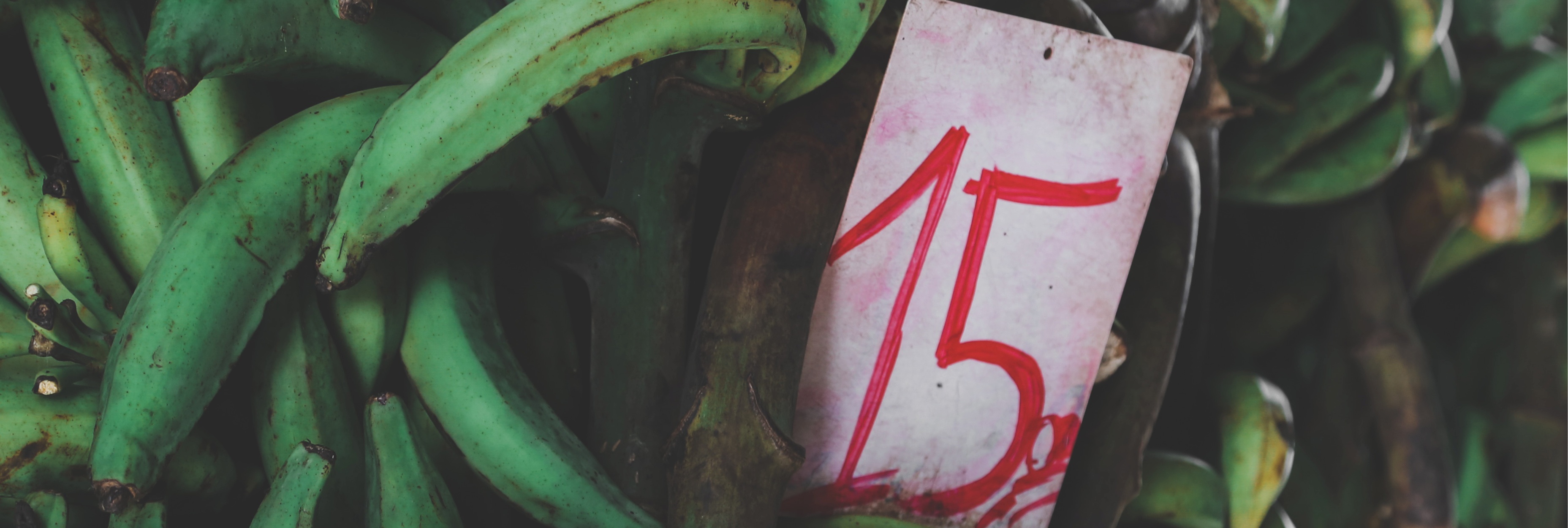At Winnow, we’ve been exploring how we measure, reduce, and talk about our own carbon journey. As a company, one of our values is to be Bravely Honest, so we think it’s important to share with you how our thinking on the topic has evolved.
From a climate change perspective, food waste contributes around 8% of global greenhouse gas emissions. To put that into perspective, the global aviation industry contributes around 2%, so cutting down on food waste is one of the most impactful things we can do to combat climate change.
In FY20, for every one tonne of carbon emitted in Winnow’s business, we helped our clients save 75 tonnes of CO2e. Whilst Net Zero has become a focal point in the discussions on climate change, for companies like Winnow whose main purpose is to reduce emissions, we think focusing on Net Zero is shortsighted because it could lead us to investing in offsetting projects. Instead, we’re focusing on improving the ratio with which we deliver savings to our clients. As a B-Corp, it’s important that we continue to embed this focus on our mission across the organisation, so we’ve added a new value to our set; we are now People and Planet Positive.
Is net zero misleading?
We started off by looking at our footprint. Technically, our Scope 1 and Scope 2 footprint is very small. Scope 1 emissions cover the GreenHouse Gas (GHG) emissions that we make directly. For Winnow, our Scope 1 emissions include the small part of our manufacturing that is done onsite. Scope 2 are the emissions we make indirectly. For us, this includes the energy from our offices where we manage them ourselves. Scope 3 emissions are the ones we are indirectly responsible for, up and down our value chain.
We think it’s important that we take a holistic approach to our emissions, so we’ve also looked at Scope 3, which is by far the biggest part of our emissions, and includes all of our purchased goods and services (e.g. our fleet of systems installed in kitchens around the world), business travel (mostly from installing our systems at client and training our clients), product shipping, end of life product disposal and data storage. Our Scope 1, 2 and 3 total emissions in FY20* were 645 tonnes. Over the same period, Winnow helped our clients prevent 11,317 tonnes of food waste, which amounts to 48,663 tonnes of CO2 equivalent emissions. So, for every one tonne of carbon emitted, we’ve prevented 75 tonnes of CO2e.
It’s great that the development of Science Based Targets are leading to more stringent thinking on what Net Zero really means. But, the reality is that for businesses like Winnow, where scaling our operations directly leads to much more CO2e emissions saved, the term Net Zero, or even Carbon Neutral is misleading and unhelpful. In order for us to technically meet Net Zero, we could purchase credits to offset our emissions with an offsetting partner. Doing so would currently cost us around £32k, for our Scope 1, 2 and 3 emissions. We explored partnerships with various providers of offsetting credits, including regenerative soil companies that held our core values. However, knowing that food waste prevention is the number one thing** that can be done to impact climate change, it felt wrong to invest money that could be better spent improving our operations and therefore helping our clients save more food waste.
Problems with Net Zero and Carbon Negative labels
It’s becoming increasingly common for companies to target Net Zero, and to advertise loudly that they are doing so. Another term we often hear used is Carbon Negative. Despite the 48,663 tonnes of carbon-equivalent emissions we helped prevent in FY20, we don’t feel like we can legitimately use either of these terms. We’re helping our clients to save those emissions, so any reductions should be (and often is) counted by them, not us.
Going further - becoming people and planet positive
Of course, there are things we can do to make our ratio of emissions to savings even bigger. For Winnow, that means both decreasing our own footprint, but also increasing the savings per system. Over the next year we plan to:
- Continue to develop our products so that they help our clients reduce even more of their food waste. For example, we now have a product dedicated to helping our clients reduce their plate waste which means that we can save more food waste per food outlet
- Improve our reporting suite, which gives clients actionable insights on how to reduce their food waste, increasing reductions
- Refine our hardware so that it uses less steel and other materials, which is a big part of our Scope 3 emissions
- Expand our definition of Scope 3 to include the emissions our clients incur from electricity used to run our systems in their kitchens
- Explore a ‘sleep’ function on our hardware to use less electricity at our client sites during quiet periods
- Improve our e-learning and remote training offering, so that more implementations can be done remotely
The way that the existing Net Zero methodology works today doesn’t account for companies like Winnow, whose core mission is to reduce carbon emissions. We hope that the thinking on this continues to evolve. Despite the shortcomings of the methodology, going through this process has reminded us that we can and should be making choices which improve our emissions to impact ratio in everything we do. We’ve decided to memorialise this by adding a new value to our business’ five, now six, stated values;
We are People and Planet Positive. We are committed to preserve the environment and hold ourselves responsible to make planet-positive choices. We are seeds of change who inspire our community to conduct environmentally sustainable business.








Comment on my blog